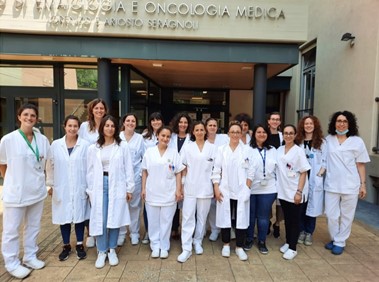Molecular Biology Laboratory
The laboratory performs advanced molecular diagnostics for the principal forms of myeloid and lymphoid leukemia and multiple myelosis. High-resolution technology leads to the identification of: new molecular classifiers for the diagnosis, prediction, and monitoring of the therapeutic response; possible new therapeutic targets. The laboratory is made up of three working groups which manage the diagnostic-molecular activity and translational studies related to different hematological diseases, in close collaboration with the appropriate clinical reference research groups (for multiple myeloma, acute leukemia, or chronic leukemia).
Areas:
Oncology and Haematology
